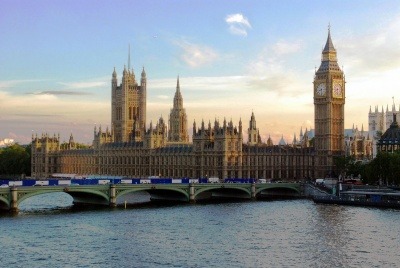CCC 2022 progress report: ‘Current programmes will not deliver Net Zero’
Today (29 June), the independent Climate Change Committee has released a progress report claiming there are major failures in the UK Government’s attempts to achieve Net Zero.

A year after the launch of the Government’s new Net Zero Strategy, the body observed a four per cent increase in emissions in the past year, despite levels remaining ten per cent lower than they were pre-pandemic.
With ‘scant evidence of delivery against its headlines goals’, the report draws particular attention to surface transport, electricity generation and manufacturing as the sectors with the largest rise in emissions over the past year.
The document also higlights the areas in which most progress has been made, including the rollout of renewable electricity, which has led to a nearly 70 per cent decrease in the generation of new electricity in the last decade. An ongoing increase in the deployment of electric cars is also praised, while energy efficiency in domestic homes is noted as an area for policy improvement.
Agriculture and land use, despite the recent announcement of the Government’s new Food Strategy, is slated as having the ‘weakest’ policies, despite its central importance in cutting emissions and influence over food security and biodiversity.
The role of waste in reaching net zero emissions
With waste making up six per cent of the UK’s overall emissions in 2020, the report notes a ‘heavy reliance’ on incineration and energy-from waste.
Despite a five per cent reduction in emissions from landfill – due to changes to the Landfill Tax in 2020 – this progress is reportedly being undermined by the increasing diversion of waste to incineration, as well a decrease in recycling in England and Scotland due to a reduction in services during the pandemic.
Although the Government’s Net Zero Strategy, according to the CCC, provides ‘limited detail’ how emissions from waste will be reduced, the body sees promise in the Government’s intention to prevent bio-degradable waste from going to landfill by 2028. The report notes that ‘a series of reforms to waste collection and treatment’ will be brought in under the Environment Bill, with these being ‘key’ to meeting the landfill commitment and future waste reduction and recycling targets.
The report also recommends that a sector plan be published, detailing how the industry will reach Net Zero. The Government must also ensure the effective application of incentives and regulation to facilitate decarbonisation, the CCC says.
Overall recommendations
With over a third of the UK’s required emissions reductions not predicted to be met by its plans, the CCC warns that the Government’s current strategy will not deliver Net Zero. To better its chances of meeting this goal, the report says, the Government should develop contingency plans, such as encouraging reduced consumer demand for high-carbon activities.
The CCC also urges better public engagement and a review of HM Treasury’s tax strategy. Commitment to the Net Zero Strategy should be maintained in the Government’s approach to overall legislation, with particular attention paid to tackling minor issues like skills gaps and planning consents for infrastructure swiftly.
‘The window to deliver real progress is short’
Lord Deben, Chairman of the CCC, said: “The UK is a champion in setting new climate goals, now we must be world-beaters in delivering them. In the midst of a cost-of-living crisis, the country is crying out to end its dependence on expensive fossil fuels.
“I welcome the Government’s restated commitment to Net Zero, but holes must be plugged in its strategy urgently. The window to deliver real progress is short. We are eagle-eyed for the promised action.”
'Another reminder that none of us can tackle this in isolation'
A spokesperson from WRAP added: "Many of us will have spent the morning digesting the contents of the Climate Change Committee’s Progress Report, and the stark warning that current policies require radical action if they’re to be successful in limiting climate change. As Lord Deben commented today – the UK’s targets are the most ambitious and necessary in the world. But we’re failing to turn them into reality, and time is running out to turn things around.
"The headlines have naturally focused on insulation of homes and energy, but the range of measures identified for urgent action in the report reach way beyond that.
"It is imperative that any actions we take on climate change should tackle the cost of living crisis in tandem. Today’s report highlights the huge untapped potential in greater resource efficiency and the need to change the way we make, use, and design products to cut our carbon emissions much further and faster. Our recent report – 'Levelling up through a more circular economy' – shows how resource efficiency also contributes to the levelling up agenda through job creation and economic growth.
"There are also several recommendations around cutting food waste from farm to fork. We need to accelerate progress on helping people to reduce food waste at home, where 60 per cent of food waste occurs, protecting stretched household budgets as well as the planet.
"It’s another reminder that none of us can tackle this in isolation. Governments and businesses need to act with urgency and bring citizens along the journey so that they understand where they can act too. Changing ingrained behaviour is notoriously difficult, but it can be done, and I’m grateful that we now count our colleagues at Behaviour Change as partners in tackling this.
"At WRAP we have our vision of a thriving world in which climate change is no longer a problem firmly in our sights, and we’re more than up for the challenge."




